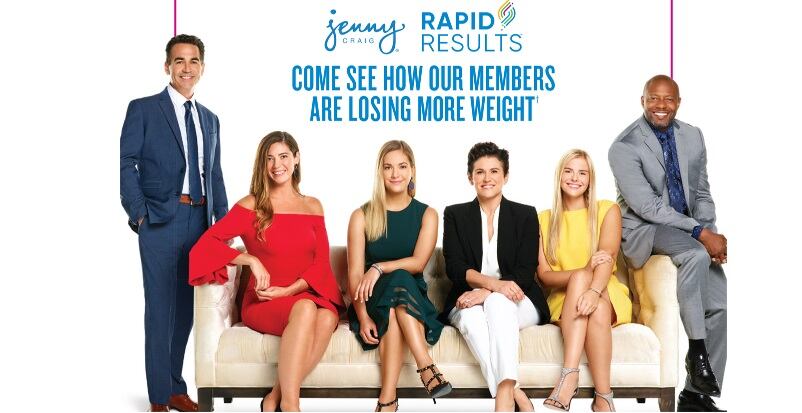According to Jenny Craig’s Weight Loss In America report released today, Americans are struggling with their weight at exceeding levels, and also struggling to comb through the “overwhelming number of so-called ‘wellness’ claims,” and the “influx of information, and more importantly, misinformation surrounding the topic.”
The report, which is based on a survey of more than 500 US adults conducted by Lucid for Jenny Craig, notes that obesity in America is a widespread problem with adult obesity rates in nine US states exceeding 35% as of 2018. In an additional 31 state the rate surpasses 30%, and in 48 states it tops 25%.
The report stresses that “this rate increase, coupled with life-threatening health issues, underscores the critical need for Americans to prioritize their health.”
And many Americans want to, according to the survey results. The study found more than three in five Americans want to lose weight, and nearly half want to do so to improve their overall health.
As the connection between excess weight and health becomes more understood, Americans looking to lose weight want to drop more than in previous years. According to the study, of those who want to lose weight, half want to lose at least 30 pounds and just over a quarter want to lose 50 pounds or more – a 10% increase from 2018.
Is DNA stronger than will power?
Desire and willpower alone are not enough to help Americans meet their weight loss goals, according to Jenny Craig. As such, many Americans are curious how their genetics may predispose them to gain weight or influence what a successful diet and lifestyle might look like for their weight loss, according to the study.
“With at-home DNA testing kits growing in popularity, more people are exploring their DNA to understand their unique genetic makeup. Yet, most respondents say they have never take a DNA test (70%), and few have used diets or weight loss plants customized to their DNA,” the report notes.
But that doesn’t mean they aren’t interested. Rather, the survey found 46% of people expressed high levels of interest in using DNA test results to create a personalized weight loss plan. In addition, 43% thought a plan based on DNA test results would likely help them lose weight more effectively, the report notes.
“The most important potential benefits seen from taking a weight-loss focused DNA test are information regarding metabolism (29%), what specific diet would be most effective for their body type (27%) and which genes impact weight loss/gain (21%),” the survey revealed.
Jenny Craig recently introduced its DNA Decoder Pan, which uses DNA test results to offer clients 15 key weight loss insights, a personalized menu plan to optimize weight loss, an "actionable report with tips based on your results -- including exercise recommendations," and a dedicated consultant.
Apps often fall short
Joining a weight loss program or following a diet via an app is another slightly less high-tech way that many respondents said they had or would like to try to reach their goals. The survey found 42% of respondents are currently considering an at-home diet to help them lose weight, while 32% are considering apps to track their goals, eating and activity levels.
But the report warns that for many people “app use for weight loss does not appear to be the answer.”
It explains: “Of the respondents who have used an app for weight loss, more than a third (33%) have downloaded the app but never used it, while a quarter (25%) lost weight, but gained it back soon after.”
The report hypothesizes this is because apps don’t hold people as accountable as interacting with other people in person or over the phone.
“More than half (58%) of respondents say that in-person or over-the-phone weight loss support from a trained consultant would help them be more successful at achieving sustainable weight loss than using an app or a bot,” according the report.
However, who people connect with for support influences their success rate, according to the report.
For example, it found 37% of Americans’ medical providers directed them to lose weight, but 68% said they were provided with little-to-no specific information regarding how to lose weight.
“This disconnect between the recommendation to lose weight and the lack of knowledge for how to see it through makes it more difficult for individuals to reach their weight loss goals,” the report notes.
Similarly, while friends and family provide 73% of respondents with health and lifestyle inspiration, “that doesn’t necessarily mean these people will provide the necessary support for a weight loss journey,” according to the report.
It adds that this is where Jenny Craig – an early proponent of personalized nutrition and supported weight loss – comes in. Jenny Craig has always helped people lose weight by connecting them with trained weight loss consultants in-person or over-the-phone. It also seeks to provide inspiration and guidance, as well as a community of followers who can act as an extended support network, according to the report.
It concludes: “Having a solid support system is critical to helping individuals lose weight and maintain their weight loss.”




